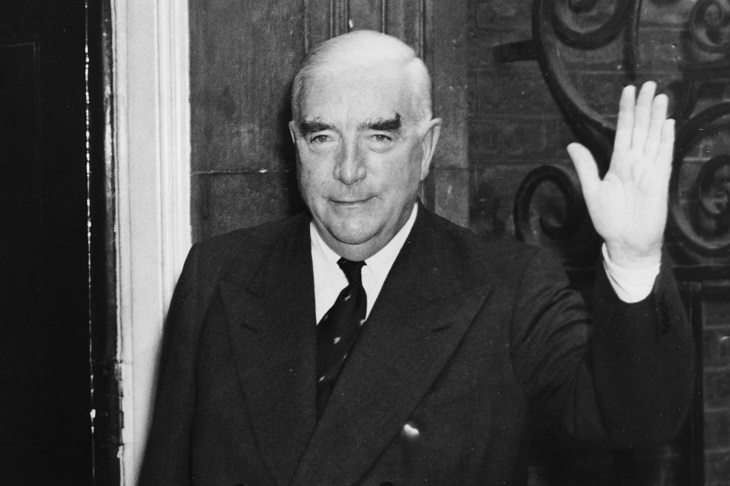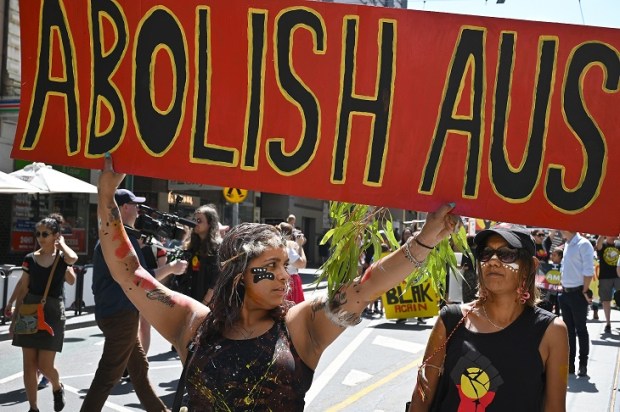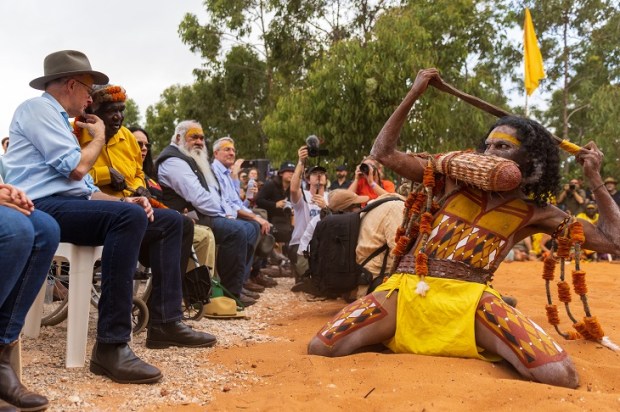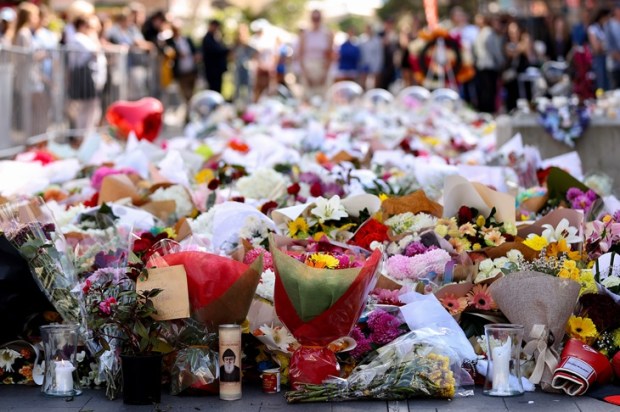Julia Banks, former Liberal member for Chisholm, says the party is over for the Liberals. Writing in the Saturday Paper, she says the party is ‘embedded in an anachronistic world, such that the phrase “modern Liberal Party” is an oxymoron’.
Banks, you may recall, decided not to re-contest her seat after the party room voted to replace Turnbull with Morrison in 2018. She resigned from the Liberal Party and sat out her term as an independent on the crossbench, a harbinger of the Teals to come.
Banks apparently viewed the invitation to pledge allegiance to the new King as an ‘absurdity’; saying that the Liberals who lost to Teal independents behaved as if they would be ‘re-elected by divine right’; and said many in the big business world are ‘no doubt frustrated by the Coalition’s “No” approach to everything, from their refusal to negotiate on the safeguard mechanism to the Voice’. But most of all, she argues that the Liberals are no longer the ‘party for business’.
It’s clear is that by business she means big business – the Woke corporations. She mentions the big banks, mining companies, retailers, and law firms. This is the very constituency the father of the Liberal Party, Robert Menzies, excluded from ‘the middle class’ he founded the party to represent. And his reasons, expressed in his famous Forgotten People speech, are as clear and relevant today as when he made it in May 1942.
‘I exclude at one end of the scale the rich and powerful: those who control great funds and enterprises, and are as a rule able to protect themselves – though it must be said that in a political sense they have as a rule shown neither comprehension nor competence. But I exclude them because, in most material difficulties, the rich can look after themselves.’
He also excluded from the ‘middle class’ the ‘mass of unskilled people, almost invariably well-organised, and with their wages and conditions safeguarded by popular law’. But he was explicit that ‘one of the prime objects of modern social and political policy is to give them a proper measure of security, and provide the conditions which will enable them to acquire skill and knowledge and individuality’.
These exclusions from ‘the middle class’ being made, Menzies says it includes ‘the intervening range’:
‘The kind of people I myself represent in Parliament – salary-earners, shopkeepers, skilled artisans, professional men and women, farmers and so on. These are, in the political and economic sense, the middle class.
‘They are for the most part unorganised and unself-conscious. They are envied by those whose benefits are largely obtained by taxing them. They are not rich enough to have individual power. They are taken for granted by each political party in turn. They are not sufficiently lacking in individualism to be organised for what in these days we call ‘pressure politics’. And yet, as I have said, they are the backbone of the nation.’
In short, the Liberal Party’s core business constituency is not the large corporations – they can look after themselves, and don’t need a political party to do so. The Liberals’ core business constituency is small business, family business, independent professionals, and skilled trades people. People who are constantly in danger of being ground up by big business, big government, and organised labour. People who do need a political party to represent their interests.
Julia Banks would have the Liberals abandon this constituency to be the political arm of Australian Woke corporatism, championing the causes now fashionable in their human resources departments, and, presumably, whatever becomes fashionable in the future.
I like to think Menzies anticipated the Teals when he expressed his belief that the real life of this nation is not to be found in ‘the petty gossip of so-called fashionable suburbs’. Rather, ‘It is to be found in the homes of people who are nameless and unadvertised, and who, whatever their individual religious conviction or dogma, see in their children their greatest contribution.’
Menzies is clear that the Liberal Party should not be the party of the large corporations, nor swayed by the virtue-signalling chatter in the Teal electorates. Its attention should be on middle Australia, with its ‘responsibility for homes – homes material, homes human, and homes spiritual’. Homes material: a place to live, to raise a family, to find sanctuary, and to be among friends. Homes human: that provide a foundation for education, and from which we and our children can make our contributions to society. Homes spiritual: that develop an independence of spirit.
The moment a man seeks moral and intellectual refuge in the emotions of a crowd, he ceases to be a human being and becomes a cipher. The home spiritual so understood is not produced by lassitude or by dependence; it is produced by self-sacrifice, by frugality, and saving.
What, compared to these pearls of wisdom from its founder, would be Julia Bank’s Liberal Party? A cipher of the Woke corporations and the gossip of the fashionable suburbs…?
All the big corporations want from such a Liberal Party is to echo their Woke corporate brand positioning, while taking the brunt of the political fight against excessive taxation, uncomfortable union demands, and to compromise with Labor who otherwise must deal with the radical demands of the Greens. Big business finds such public advocacy on its own behalf distasteful in the 21st century world of social media.
Such a Liberal Party would easily be framed by Labor as a party for the big end of town. Labor, even if it is aligned with many large corporates on social causes, has the unions to provide street credibility, ballast, and organisational firepower. A Liberal Party adopting every contemporary fashionable dinner party and boardroom social cause would be a party bereft of moral fibre, ineffectual, and the plaything of the rich. In short, it would be indistinguishable from the Teals, whom we already have.
No, the Liberal Party should recommit to being the party of individualism, personal responsibility, enterprise, and aspiration. As contrasted with collectivism, victimhood, dependency, and lassitude. As Menzies understood, the big corporations and unions have their voices. The Liberal Party exists not to be another voice for corporate Australia or organised labour, but to be a voice for everyone else, the forgotten people who are the backbone of the nation and whom our Woke elites view with increasing contempt.
Dr Michael Green has a PhD in Systems Engineering.
Got something to add? Join the discussion and comment below.
Get 10 issues for just $10
Subscribe to The Spectator Australia today for the next 10 magazine issues, plus full online access, for just $10.


























Comments
Don't miss out
Join the conversation with other Spectator Australia readers. Subscribe to leave a comment.
SUBSCRIBEAlready a subscriber? Log in